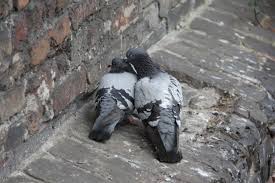Why does the heart beat fast when one is falling in love?
Love is all about chemicals although poets, novelists and songwriters have described falling in love in countless turns of phrases. The whole attraction process is strongly linked to physiological arousal when this happens things like increased heart rate, sweating and flushed cheeks occur.

What happens when you are falling in love
A chemical release occurs when the brain sends a signal to the adrenal gland. The gland releases hormones of adrenaline, dopamine and norepinephrine into the body.
This adrenaline rush is responsible for the fast heartbeat, while the dopamine is responsible for creating the feelings of excitement.
They flow through the blood and cause the heart to beat faster and stronger, Ho said.
The response is somewhat similar to a fast heartbeat while running on a treadmill, although exercise has other benefits, he said.
For people with serious heart problems, love could actually be dangerous, Ho said. That’s because when the heart rate goes up, the heart uses more oxygen, which can be risky for an older person with blood vessel blockages or who has had a prior heart attack. But good medicines such as beta blockers help curb the adrenaline response.
It is also likely that norepinephrine, a stress hormone that governs attention and responding actions, makes you feel weak in the knees, said Helen Fisher, professor at Rutgers University and author of the book “Why Him? Why Her? Finding Real Love by Understanding Your Personality Type.”
Fisher’s research team did brain imaging of people who said they were “madly in love” and found activity in the area of the brain that produces the neurotransmitter dopamine. Dopamine and norepinephrine are closely related.
“What dopamine does is it gives you that focused attention, the craving, the euphoria, the energy and the motivation, in this case the motivation to win life’s greatest prize,” she said.
There are three phases of love, according to the Loyola Sexual Wellness Clinic: lust, attraction and attachment.
Lust is the desired phase driven by the released hormones. During the attraction phase, adrenaline causes the increased blood flow from the heart to trigger the pleasure center of the brain. This is when you feel that obsession–that can’t stop thinking about the other person obsession.
The attachment phase causes that fixation behavior to fade because your body develops a tolerance to the chemicals. This phase is when the endorphins and hormones are released, which creates the sense of security one feels in a lasting relationship.

Also likely involved is the serotonin system, she said. Some data from an Italian study indicate that a drop in serotonin levels is associated with obsessive thinking.
The stress hormone cortisol has also been shown to have implications for love, Loving said. His lab showed study participants who had recently fallen in love a picture of a romantic partner or friend, and had them describe or “relive” the moment of falling in love or wanting to be friends, respectively.
Those who recalled falling in love showed an increase in stress hormones such as cortisol even 30 minutes after they were asked to think about it.
Generally, there are three brain systems involved in romantic love: sex drive, love and attachment, Fisher said. The sex drive evolved to get you to look for a lot of partners, the “love” portion is for focusing mating energy on one specific person at a time, and attachment is for allowing you to tolerate the partner — at least, long enough to have children with him or her.
These systems are often connected, but can operate separately, she said. That means you can start out with one of them — casual sex, or an intense feeling of love, or an emotional connection — and move on to the others. For example, what may start out as a one-night stand may feel like more because the hormones oxytocin and vasopressin, released during orgasm, make you feel deeply attached to someone. You may feel in love after that, or instead feel somehow responsible for the person, because of these hormones.
In the days of early humans, in hunting-and-gathering societies, these qualities were especially advantageous for finding a person to bear and raise children with, she said.
Love also has health benefits for people who have aged beyond their reproductive years, she said. Being in love makes people feel optimistic, energetic, focused and motivated, which were all positive for health and societal contribution in the early days of humans, she said. So, it makes sense evolutionarily that people can still fall in love after their childbearing period.

Credit: https://www.ahchealthenews.com/
https://edition.cnn.com/



Leave an answer
You must login or register to add a new answer.